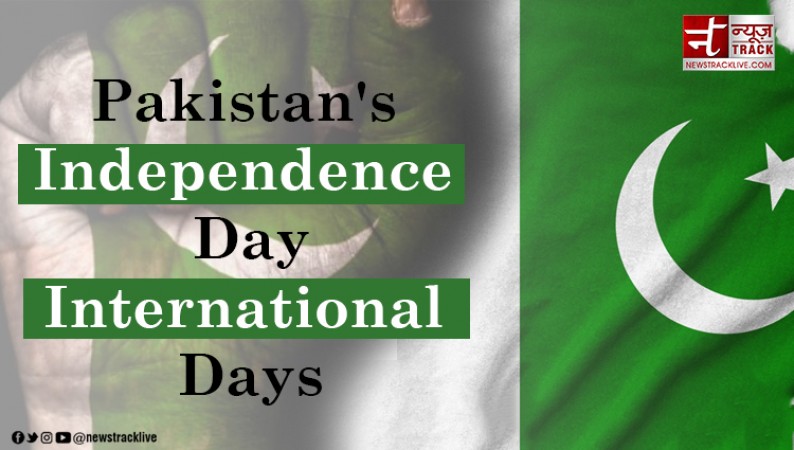
Every year on August 14th, Pakistanis around the world come together to celebrate their nation's Independence Day. This significant day marks the culmination of a long struggle for self-determination and the birth of a sovereign state. The observance of Independence Day serves not only as a time for jubilation but also as an occasion to reflect upon the sacrifices made by countless individuals who fought for the country's autonomy.
Historical Context: The history of Pakistan's Independence Day is intricately tied to the end of British colonial rule in the Indian subcontinent. As the British Empire faced the challenges of World War II and the global political landscape evolved, the demand for self-governance grew stronger in India. The leadership of the Indian National Congress, as well as the efforts of prominent leaders like Mahatma Gandhi and Jawaharlal Nehru, paved the way for negotiations between the Indian National Congress and the British government.
The culmination of these negotiations was the Mountbatten Plan, which proposed the division of British India into two separate states – India and Pakistan. This division was based largely on religious lines, with Pakistan being created as a homeland for Muslims. On August 14, 1947, Pakistan emerged as an independent nation, separating from India, and Mohammad Ali Jinnah became its first Governor-General.
Commemorating Independence Day: Independence Day in Pakistan is a national holiday marked by a range of celebratory events and activities. The day begins with a flag-raising ceremony, where the national flag is hoisted at government buildings, public squares, and private residences. The flag itself symbolizes the aspirations, unity, and resilience of the Pakistani people.
The President and Prime Minister of Pakistan address the nation on this day, emphasizing the importance of unity, progress, and development. They pay tribute to the founding fathers, the sacrifices of the independence movement, and the armed forces for their dedication to the nation's security.
Cultural Expressions
One of the striking aspects of Pakistan's Independence Day celebrations is the sense of national pride that permeates various cultural expressions. People dress in green and white, the national colors of Pakistan, and adorn themselves with symbols of the country's heritage. Special events, parades, and cultural performances take place across the nation, showcasing the rich diversity of Pakistani culture.
Reflecting on the Journey: Independence Day is not just a day of celebration; it is also an occasion for reflection. Pakistan's journey as a nation has been marked by triumphs and challenges alike. The day serves as a reminder of the struggles endured by those who fought for freedom and the responsibility of the present generation to uphold the values of democracy, justice, and equality.
Challenges and Aspirations: While Independence Day is a time of festivity, it's also an opportunity to address the challenges that Pakistan faces. Issues such as poverty, political instability, and terrorism remain significant concerns. On this day, citizens are encouraged to renew their commitment to addressing these challenges and working towards a more prosperous and harmonious nation.
Global Significance: The significance of Pakistan's Independence Day extends beyond its borders. It is a day that underscores the importance of self-determination and the right of nations to chart their own destinies. The struggles and achievements of the Pakistani people serve as an inspiration for others striving for independence and autonomy.
Pakistan's Independence Day is a day of celebration, remembrance, and reflection. It honors the sacrifices of those who paved the way for the nation's autonomy and celebrates the diverse cultural tapestry that is Pakistan. As the country moves forward, it is essential to remember the lessons of the past and the vision of its founders, fostering a sense of unity and pride that continues to shape Pakistan's destiny.